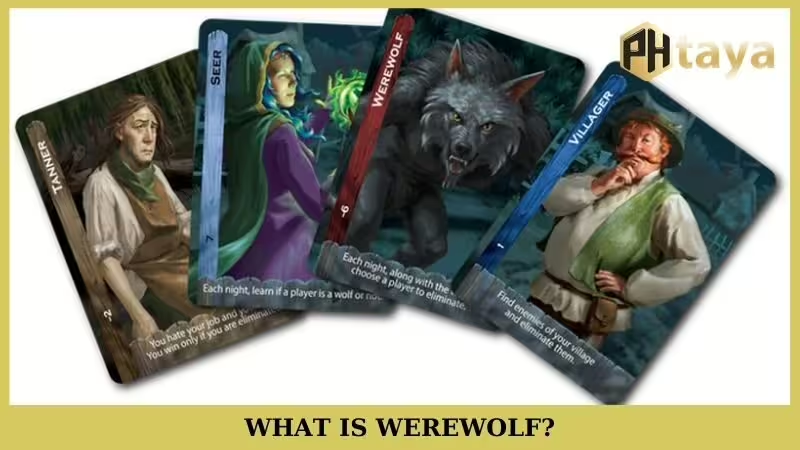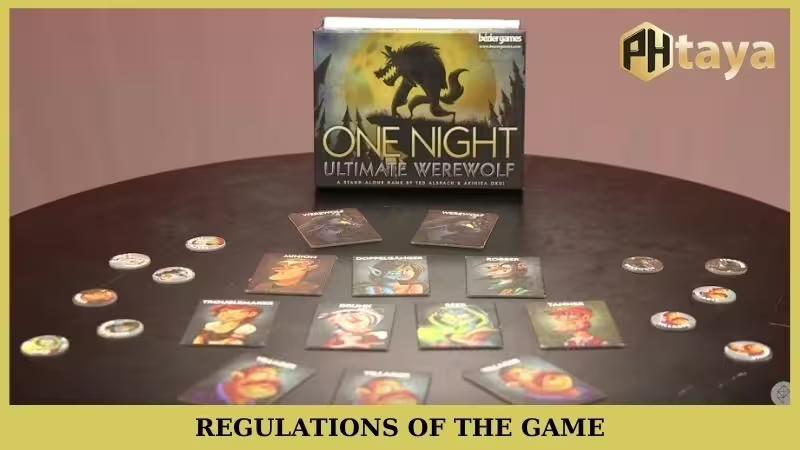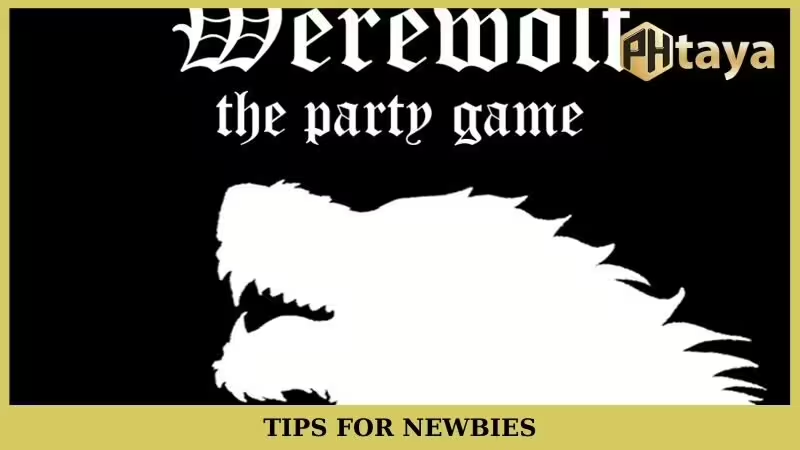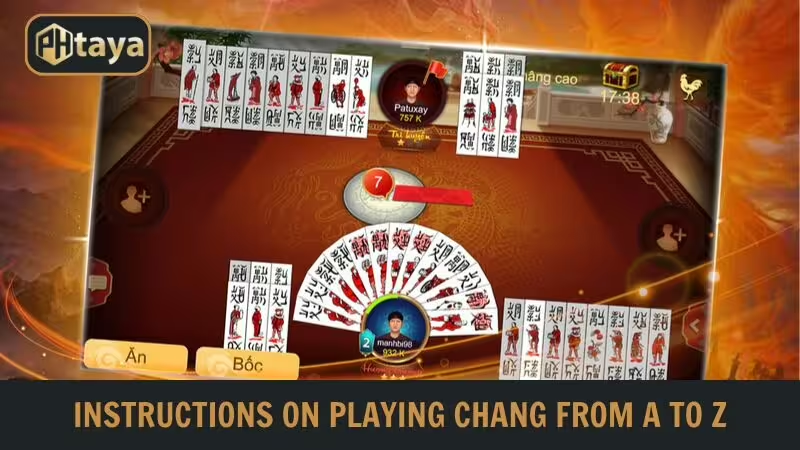Werewolf is a social deduction game where players take on roles such as werewolves, villagers, and special characters. The game alternates between night and day phases, with werewolves trying to deceive and villagers trying to identify them. Played as a card game, board game, or online, it challenges players to use strategy and communication. Let’s learn more about this interesting game with phtaya com!
Werewolf: History and Introduction
The werewolf card game is a classic social deduction game that has captured the imaginations of players worldwide. Originating from classic party games, it has evolved into various formats including card games, board games, and online adaptations. But what is Werewolf, and why do people love playing it? Werewolf is a social deduction game where players take on different roles—typically villagers and werewolves – and try to uncover each other’s identities through conversation and strategy.

The game is known for its intense, strategic discussions and psychological play, making it a hit at parties, game nights, and even online platforms. The thrill of deception and strategy is what keeps players coming back to play again and again.
There are several reasons why Werewolf has such a dedicated following:
- Engaging social interaction: The game requires players to read each other’s body language, interpret speech, and make quick decisions, which fosters deep social interaction and bonding.
- Strategy and deception: Players must use their wits to manipulate others, which adds a layer of strategy and psychological play that appeals to competitive gamers.
- Flexibility: Whether played as a card game, board game, or online version, it can be adapted to suit different group sizes and settings, making it a versatile choice for game nights.
This type of game now can be played online! The Werewolf game online’s rules are easily adapted for digital play, allowing people from around the world to join in on the fun. Online versions often include chat features, voice communication, and even video calls, which maintain the interactive and social aspect of the game. This makes it easy for players to enjoy this game anytime, anywhere.
Werewolf card game rule
Let’s learn about how to play this type of PvP card game with the instructions from PHTAYA below!
How to play Werewolf
Werewolf typically involves a moderator who directs the game and announces the phases. Each player is assigned a role, such as a wolf, villager, or special character with unique powers. The game progresses through different phases:
- Night Phase: Werewolves choose a victim from the villagers, while other villagers perform their roles (e.g., the seer checks a player’s role). The moderator then announces who has been “killed.”
- Day Phase: The villagers discuss who they think the werewolves are based on the night’s events. Players make accusations and vote to execute one suspect.
- Repeat: The game continues with alternating day and night phases until all werewolves are caught or the werewolves outnumber the villagers.

Relevant regulations
Each role in this has specific rules:
- Werewolves: The PHTAYA team must work together to hide their identity and eliminate villagers. They know each other’s identities but must deceive the other players to win.
- Villagers: Aim to identify and vote out the werewolves while protecting their own identities.
- Special Roles: Characters like the seer, doctor, or hunter have additional powers that can alter the game’s outcome. The seer can look at another player’s card to see if they are a wolf, the doctor can protect someone from a wolf attack, and the hunter can take down a wolf if they are executed.
Useful tips: how to beat’em all
- Listen Carefully: Pay attention to other players’ arguments and body language. Good werewolves will try to throw off suspicion, so reading between the lines is crucial.
- Don’t Be Afraid to Bluff: Werewolves need to deceive other players, so don’t be afraid to lie or create confusion if you’re one of them. The key is to make sure you’re convincing.
- Work as a Team: If you’re a wolf, coordinating with your fellow werewolves is key. Don’t give away information that could help the villagers, and work together to eliminate the villagers strategically.
- Use Special Powers Wisely: If you have a special role, use your power at the right moment to influence the game. For instance, the seer can reveal the identity of a wolf, and the doctor can save a player from an attack.
- Be Strategic in Voting: The day phase is where players vote out suspects. Use the discussion to gather information, make logical arguments, and identify inconsistencies. It’s important to form alliances and convince others to vote in your favor.

Some other common roles in Werewolf
In the Werewolf board game, several special roles add depth to the gameplay on PHTAYA:
- X Games Poker on Phtaya Casino – Philippines Gambling Paradise
- JDB Poker Game: Bet Pusoy Rush & Poker Racing on PHTAYA
- JILI Poker Game PHTAYA – A gathering place for gamblers
- Seer: Allows players to look at another’s card to see if they are a wolf, helping the villagers identify suspects.
- Doctor: Can protect a player from a wolf attack, making them immune for one round.
- Hunter: If executed, can take down a wolf with them, adding risk for the werewolves.
- Mason: A villager who knows who other Masons are, helping them form alliances and plan strategy together.
- Troublemaker: Swaps the cards of two players, causing confusion and making it harder for villagers to identify werewolves.
- Insomniac: Checks their card at night to confirm their role, which can be a useful strategy for villagers trying to deduce the game’s dynamics.
These roles enhance the strategy and excitement of the game, offering players unique ways to influence the outcome.

Conclusion
Werewolf is more than just a game; it’s a social experience that challenges players to think strategically, communicate effectively, and read between the lines. So gather your group, don your role, and dive into the PHTAYA world of the cunning and clever survive!
 Learn how to play block – Know the standard rules, win wherever you play
Learn how to play block – Know the standard rules, win wherever you play X Games Poker on Phtaya Casino – Philippines Gambling Paradise
X Games Poker on Phtaya Casino – Philippines Gambling Paradise JDB Poker Game: Bet Pusoy Rush & Poker Racing on PHTAYA
JDB Poker Game: Bet Pusoy Rush & Poker Racing on PHTAYA JILI Poker Game PHTAYA – A gathering place for gamblers
JILI Poker Game PHTAYA – A gathering place for gamblers Wow Gaming Poker PHTAYA: Play Slots, Blackjack, Bingo and More!
Wow Gaming Poker PHTAYA: Play Slots, Blackjack, Bingo and More! Interesting Discovery in Tam Cuc – Game for the Soul
Interesting Discovery in Tam Cuc – Game for the Soul